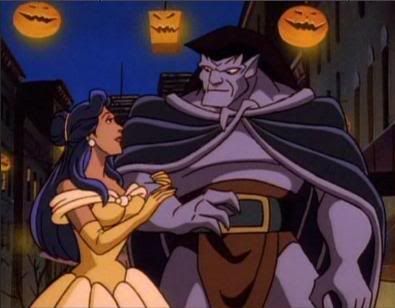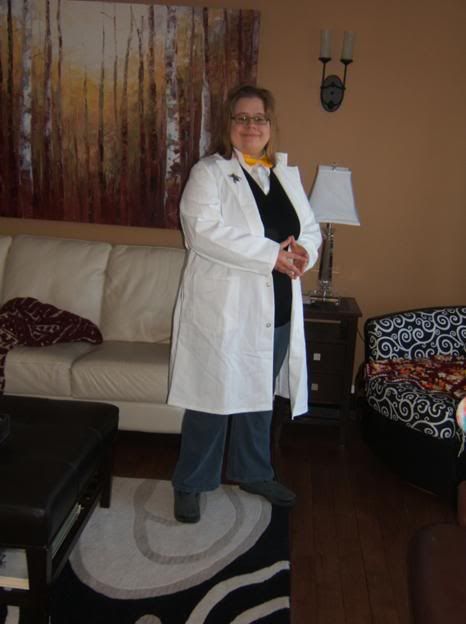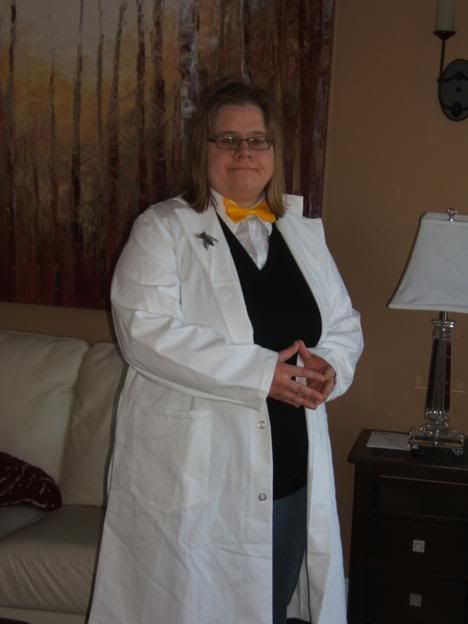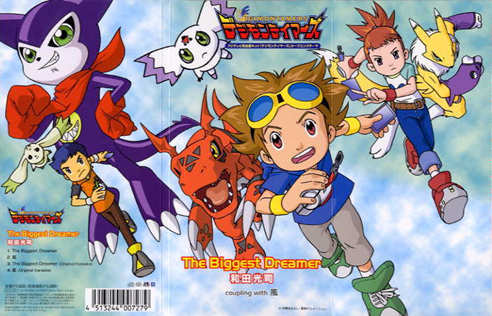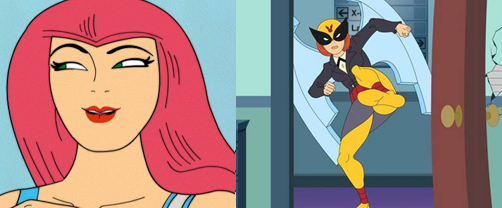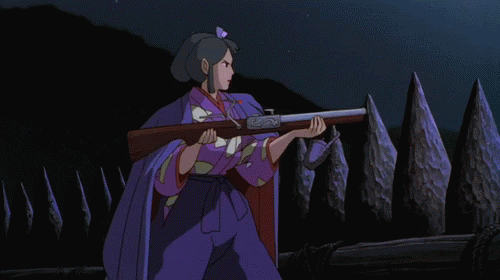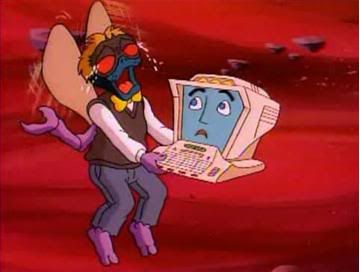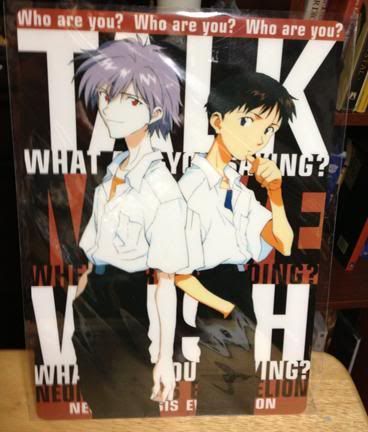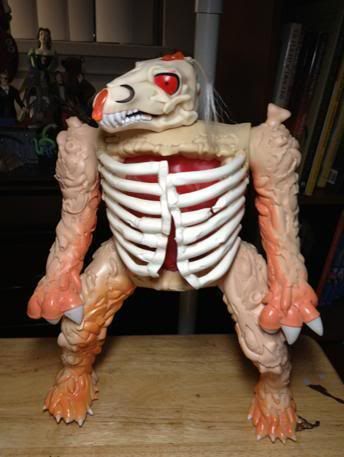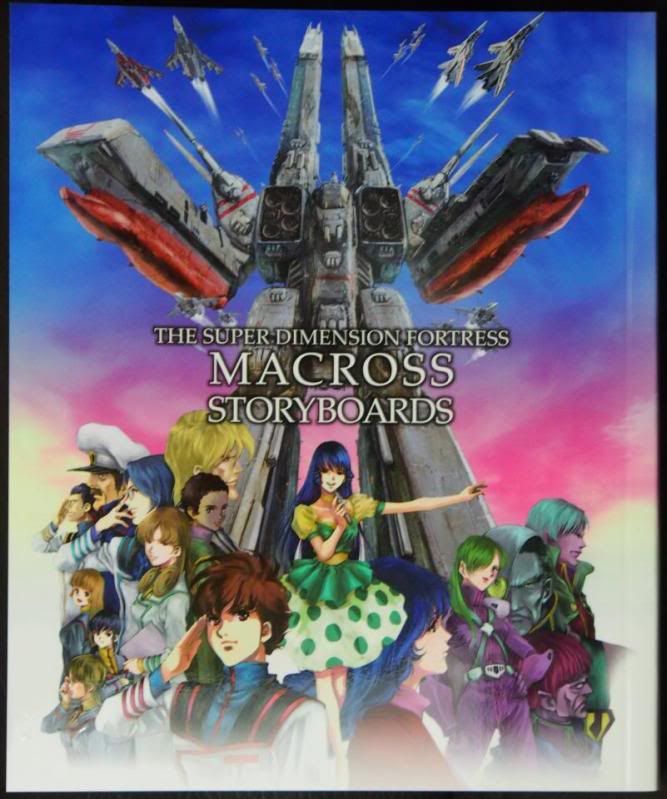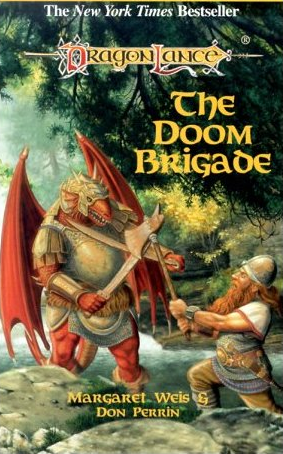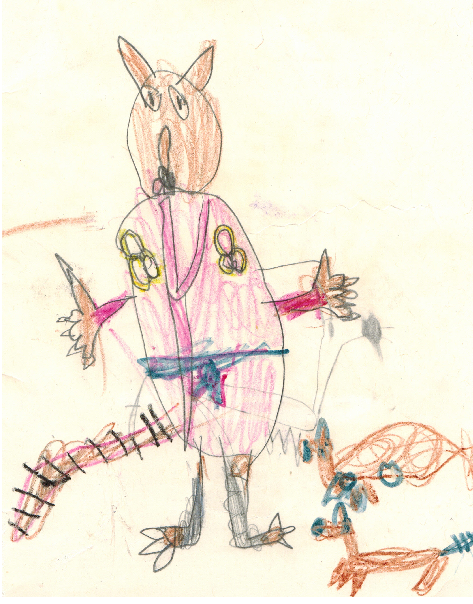
Because of Teletoon Retro, the internet, and general stress brought on by just existing, I discovered I was capable of nostalgia. It took me a long time to admit, because I thought nostalgia was for people who actually wanted to live in the past. I realize now we can just get a buzz from that stuff and help us keep on going.
My latest nostalgic experience is the re-running of the old Teenage Mutant Ninja Turtles cartoon on Teletoon Retro. The first time I realized it was running on the channel, I was repelled by how silly it was, but slowly it pulled me back in, and now I watch the re-runs regularly.
That's no big surprise, because I now remember how huge that show was in my childhood, and my enjoyment is more intense than for any other purely nostalgic property. I still make a clear point to say this doesn't mean I think the show is any good, or that older cartoons are better than new ones. In fact, I feel like I'm watching myself watching the show, not totally able to understand why I enjoy it so much, when it's so incredibly stupid.
Teenage Mutant Ninja Turtles will not become one of those childhood things, like
Freakazoid, or
Beauty and the Beast, that I "rediscover" by finding a new interest, one that relates to the person I am now and satisfies my older sensibilities. No, the Turtles show I only enjoy because of what it used to be for me.
I grew up with the Fred Wolf Turtles, knowing of them at least by 1988. I moved away from the cartoon to the Archie comics series, 'til that ended, and then I lost my Turtles-love. I was too young for the original Mirage comics, though I have read a few issues over the years, and am familiar with all the changes in lore.
Now I'm thinking I want to read/watch ALL THE TURTLES. I don't know how long that urge'll last, and even if I followed through, this is a huge media franchise that I probably couldn't even end up covering, anyway.
I really would like to read the Mirage comic in full, though. I never realized until a short time ago, how damn enormous the entire comic oeuvre was, or that it was going on until very recently. It's one of the things left out whenever anybody talks about American comics being able to succeed beyond the Big Two, and I'd like to see how it does.
But when I was growing up, hell yeah did I love some Turtles. I might've liked the Turtles universe so much because it was a place where you could do fucking anything in it. Mutants, monsters, aliens, magic, and lasers were all on the table, and nobody would care. Before knowledge of furries tainted anthro animals for me, I thought those were pretty cool, too. Back when I read the Archie comics series (which is a huge world onto itself, with some pretty intense stuff), I liked any character who was based on an animal I liked.
So, Teletoon Retro is on the beginning of the third season, and I've watched most of the first and second season on YouTube, and am slowly skipping through any other episodes during the run which might interest me.
There are declines in quality throughout, but I only vaguely notice. While I can think some critical thoughts, my lower brain is the one in control. I just love watching it, and I laugh at almost everything, not because it's actually funny to a grown-up, but because it's just so ridiculous. I laugh like a madwoman, with frequent thoughts of, "Good lord!" or "What the fuck?", and many other such cheerful curses.
"Who's your favourite character?" is one of my most important nerdy questions, and when it comes to TMNT, the answer is always and forever gonna be Master Splinter. I'm otherwise not interested in the faux-Eastern mysticism or the wise old mentor character, but Splinter is an icon from my childhood. He's even possibly the source of my longtime interest in characters of the
Rattus variety: The Secret of NIMH, Ratatouille, Rattrap (and much as I hate to say it, Verminous Skumm and a long search for a Ratar-O figure)—I was even born in the Year of the Rat, no lie.
I used to have a pack of Splinter toys that I carried around with me, including a naked original edition missing half an arm, and all three of the movie-based Splinter figures, as well as collector cards, a colouring book adaptation of "A Thing about Rats", a Random House adaptation of "Shredder and Splintered", and so on and so forth. Maybe I had that "substitute father figure" thing everyone thinks boys had for Optimus Prime, even though the apparent consensus is that in the toon Splinter was just the "Master" instead of the father figure he was in other versions—something I don't believe. He is totally a dad.
I like to try to understand how my childhood tastes in characters were the same as my tastes as an adult, and Splinter was probably my favourite because he was smart. Intelligence is one of the character traits I keep coming back to, and Splinter's got a lot of brains. Sometimes it seems like he's only character in the cartoon who's not an idiot, like when he and the Shredder switch bodies, and Splinter immediately pretends to act like the Shredder, and the Shredder just acts like himself. (Angry, bitchy Splinter is hilarious, by the way). He's got his stuff together, he does.
Sometimes Splinter is also the one to be rescued, or to stay behind while the Turtles go off and do the actual plot. I remember a lot of this, but it didn't change things. And sometimes Splinter also kicks ass, which has me going all sports-fan, like I hadn't forgotten about this character for over a decade. It's super-neat.
I always wondered why he looked more like a dog than a rat, something that is especially weird when you see regular-looking rats in the series. Some other cartoons do that to distinguish rats from mice, but Splinter is the only rodent around. I'm used to it by now, and he's like this big stuffed animal, and also just one of my favourite character designs in general, maybe because of that distinct dog-rat weirdness. I know I'd kill for the new TMNT Classics toyline to continue and make a toon-style Splinter.
(Hamato Yoshi's character design looks really weird, though; almost uncanny valley. Also, why does Splinter's sushi start out looking like chocolate macarons?)
I also decided I now had a soft spot for Baxter Stockman, Shredder's little mad scientist sidekick turned Seth Brundle. Apparently, a few people think of him as the woobie-type, and while I wouldn't go that far, since he's such a mean little mugwump, I can see why it happens.
The writers' intention is obviously, "he deserves it because he's a bad guy" but if you take that out, his life fucking sucks, including the suggestion that he's a villain because his unwitting brush with evil drove him insane. He's endearingly pathetic in some way, evilly nebbish. Baxter is also an idiot, but that's fine; I like laughing at him, too.
I like both human and insect versions of him, and his bug form is also oddly adorable. That's not easy for a bug-hater like me to say. Come on, though, he's got a sweater-vest and a giant bowtie, how is that not hilarious? All the same, though, seeing that Baxterfly was losing his faculties and gradually becoming more infantile was a genuinely disturbing moment.
Baxter also threatened Splinter's life on two occasions, one time directly and with great enjoyment, but whatever. Four-year-old me probably wouldn't have been willing to compromise, but I guess even woman-children can change.
In terms of any other characters, I can't find any that I like or care about as much. It's weird to me, right now, to realize that I don't have a favourite Turtle. I'm sure it would have been Donatello, since I dressed as Donnie for a grade school Halloween parade, I tend to prefer nerdy characters and I also love purple, but nothing's going on there so far.
That's not surprising, though, because nobody likes the same kind of character every time. It's also never about which character is the smartest, the coolest, the most developed, or the best written: you just like what you like.
I've got nothing against any of the Turtles proper, though, and I can't say I don't notice them, either. They're part of the whole Turtle thing, creating this situation where the show is enjoyable as a whole piece, not just waiting for Splinter to do something. I'm sure that part of the longevity of TMNT is because it has four distinct main characters to extend the appeal to a wide range of viewers.
April O'Neil is the opposite of distinct, though. You've got her job, you've got her role as "human friend", but she's just your Generic Nice Female Person, and there's no real sense of her as an individual character, someone that would actually be interesting as themselves. She's a textbook example of "female character whose only trait is being female".
That kind of characterization is a hard thing to define unless you see it, but I sure have. It's when you've got a female character who does things that are considered commonly feminine, but there is no sense of a personality behind it, no sense that these are the actual traits of a character. Instead, it's just what the writers threw in.
Say what you will about how shallow or, um, "slow" the rest of the major cast can be, but they've got much more personality than April does. You could tell me not to expect anything from a girl character in an 80's boy's cartoon, but my dislike of blank-slate characters transcends nostalgia just by a hair. Because you've already got these bizarre characters, you should put effort into the lone female character, too.
And I know this sounds crazy, but I guess I assumed that if April had become this fanboy icon, it had to be because there was something about her personality as well as her looks. I have no idea now what I was thinking with that.
I vaguely remember liking April's friend Irma, probably because she was the awkward female character that was the closest such a series would get a girl nerd, but in the episodes I've seen so far, Irma bugs the hell out of me. She's not just awkward, her awkwardness is used for this "going to grow up to be a crazy cat lady" vibe that I do not like. She's no Janine Melnitz, that's for sure.
Normally I do think that villains ought to be at least as competent as the heroes, but in the case of
Teenage Mutant Ninja Turtles, I'm just not in the mood to give a shit. It's not because TMNT is a comedy, because the Turtles are also dumb, but the villains are dumber, and even a funny show should try to make things equal if there's a conflict. But it doesn't bother me for some reason. I know why I give Baxter a pass, but the rest I just stare at them.
I'm sure somebody out there thinks Shredder and Krang were badass in the original cartoon, but I don't see that. They
are totally an old married couple, and Shredder is a huge brat right from day one. Fun to laugh at, but laugh at without liking them.
The theme song is a glorious, glorious earworm, but you already knew that, didn't you?
I did see
Turtles Forever when it came out, and it was lots of fun. I gotta say, I was on the side that said the goofy portrayals of the 1980s characters was spot-on: I didn't have any recent experience with them in 2009, but the portrayal just felt
right to me. It was also exciting to see something so meta-fictional on kids' TV. I didn't get a big nostalgia buzz off of the special, but it was fun to watch. I might've gotten more out if it if I'd been nostalgic at the time, but it wasn't a bad catch, either.
The "Turtles are aliens in this new movie" fiasco was something I wasn't in the mode to have an opinion about. The thing was, I couldn't imagine any way that the Turtles being aliens would impact the attachment I had to them. I had no doubt in my mind that anything Michael Bay-related would be cringeworthy, though, and am glad it seems to have died.
Actually, I think of myself as pretty chill about any differences between Turtle continuities. I only have a problem with media changes when there's just one version, or it's retroactively applied, but when Turtles, like Transformers, has all these different continuities, there's not expectation of consistency or fidelity, or even of any emotional attachment to be carried over.
However, no other Turtles thing would quite give me the charge that this nostalgic experience has. It's this perfect Id supercharge, one where you don't care about anything except being happy. You can talk about flaws and the reasoning behind your reactions, but it doesn't change your attachment either way. There's an impossible shine to all of it, and you know that nothing you observe can change that.
Hardcore nostalgia can be a dangerous feeling in large doses. It can be good to simply not care, to go back to those feelings of basic happiness that don't require critical thinking. But there's also something good about being able to step away from something, to look at it more clearly, and to have a deeper attachment that is related to your slightly-more-rational mind.
I always make this distinct split between a nostalgic and a contemporary nerdy interest. The material may be of the same quality, but I can't transform a nostalgic interest to the typical active fandom. Nostalgia is brief, and it seems stronger, but it fades fast and leaves very little behind. An active fandom is something that operates on slow burn, and demands a little bit more consideration, but also leaves something that stays. And more in the way of…not totally critical thinking, but at least the sensation of having a clearer head.
What I'm thinking is that I'm going to slowly forget about
Teenage Mutant Ninja Turtles because it is just something from my past, something that can't take over my brain in any new way.
Nice vermin, though.
